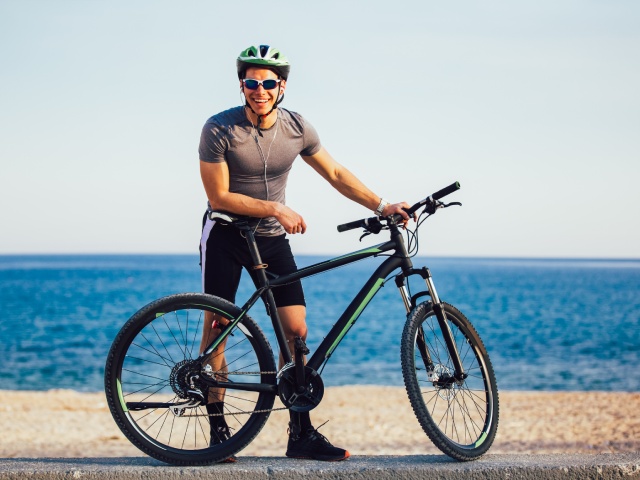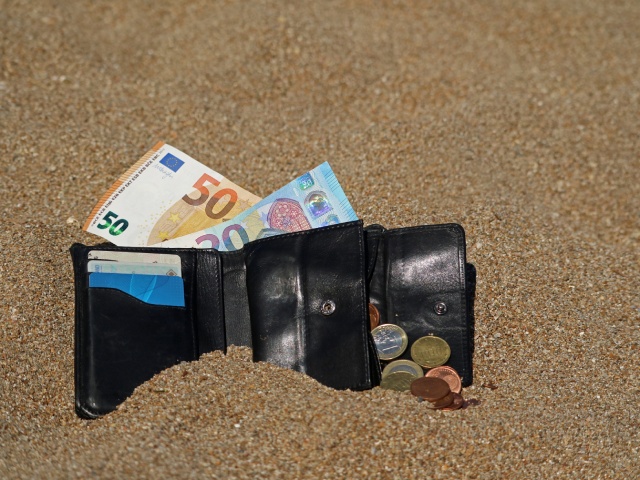Arriving late, after travelling... (B1)
Participle clauses (334)
Vedlejší věty s ING
Vedlejší věty s ING – procvičování:
Na Landigo máme další související lekce:
- Koncovka ING (A1)
- Zkracování vět pomocí -ING a -ED (B1)
Diving in Bali last year, we saw a rare turtle.
|
Diving in Bali, we saw it.
|
|
When we were diving in Bali, we saw it.
|


Pomocí krátké konstrukce s ING můžeme zkrátit některé vedlejší věty:
|
Because we live in Bali, we often go diving.
|
Protože žijeme na Bali, často se potápíme. |
|
Living in Bali, we often go diving.
|
Větu je obvykle možné zkrátit pouze tehdy, pokud jsou v souvětí podměty stejné (WE live, WE go diving).
Zkracujeme následující typy vět:
- 2 souběžné děje:
He was sitting there and he was laughing.He was sitting there laughing.
- 1. děj se odehraje během 2. děje:
When he was getting out of the taxi, he stepped into a puddle.Getting out of the taxi, he stepped into a puddle.
- 1. děj se ukončí před 2. dějem:
After he had showered, he went to bed.After showering, he went to bed.Having showered, he went to bed.
- Mluvíme o důvodu:
Because he was feeling tired, he fell asleep quickly.Feeling tired, he fell asleep quickly.
2 souběžné děje → zkrácení pomocí ING
|
Is Lucy outside and is she waiting for Tony?
|
Is Lucy outside waiting for Tony?
|
|
I was in Europe, I was visiting my friends.
|
I was in Europe visiting my friends.
|
U tohoto typu souvětí obvykle zkracujeme druhou větu.
Jeremy is often cycling along the coast listening to music or podcasts.
|
He's cycling along the coast listening to music.
|
|
He's cycling along the coast and he's listening to music.
|


Trish and Monica were in the center shopping.
| 2 souběžné děje: |
|
They were in the center shopping.
|
|
They were in the center and they were shopping.
|


1. děj se odehraje během 2. děje → zkrácení pomocí ING
|
Did you burn yourself while you were cooking?
|
Did you burn yourself while cooking?
|
|
Be careful when you are cutting the meat.
|
Be careful when cutting the meat.
|
Zkracujeme vždy děj, který začal dříve (cooking, cutting). Zkrácená věta bývá na konci souvětí.
WHEN/WHILE můžeme vynechat:
|
Did you burn yourself cooking?
|
|
Be careful cutting the meat.
|
Look! I found a wallet walking from the beach.
| 1. děj se odehraje během 2. děje: |
| I found it walking... |
| I found it when walking... |
| I found it when I was walking... |


Jack broke his leg while skiing in Switzerland last winter.
|
He broke it skiing.
|
|
He broke it while skiing.
|
|
He broke it while he was skiing.
|


1. děj se ukončí před 2. dějem → having done/after doing
|
After I had travelled all my life, I settled in Norway.
|
Having travelled all my life, I settled in Norway.
|
|
After travelling all my life, I settled in Norway.
|
|
|
After he had finished his work, he left.
|
Having finished his work, he left the office.
|
|
After finishing his work, he left.
|
Zkracujeme vždy děj, který skončil dříve (travelling, finishing work).
Having heard about the traffic jam, Molly took the subway instead of the bus.
| 1. děj se ukončí před 2. dějem: |
| Having heard about it... |
| After hearing about it... |
| After Molly heard about it... |


After having a short break, we continued climbing up the rock.
| 1. děj se ukončí před 2. dějem: |
| After having a short break... |
| Having had a short break... |
| After we had a short break... |


Důvodová věta → zkrácení pomocí ING
|
I was up studying at night because I have an exam today.
|
Having my exam today, I was up studying at night.
|
|
Because I didn't have enough energy, I drank some coffee.
|
Not having enough energy, I drank some coffee.
|
|
Since I don't know what to do, I'll ask Frank for advice.
|
Not knowing what to do, I'll ask Frank for advice.
|
Zkrácená věta stojí obvykle na začátku souvětí.
Arriving late at the airport, James missed the plane.
| Arriving late... |
| Because he arrived late... |
| Not arriving on time... |
| Because he didn't arrive on time... |


Having gotten injured, you will have to rest for a few weeks.
| Having gotten injured... |
| Because you got injured... |


Being pregnant, I'm eating as healthy as possible.
| Being pregnant... |
| Because I'm pregnant... |


Pozor, pokud vyjadřujeme, za jakým účelem se něco děje, větu nelze zkrátit:
|
Ben started working so that he could save up for a car.
|
Ben začal pracovat, aby si mohl našetřit na auto. |
|
I changed the seat so that I could see better.
|
Vyměnil jsem si sedadlo, abych lépe viděl. |
I need to borrow money so that I'm able to buy the ticket.
| Účel: |
|
I need money, so that I'm able to buy it.
|
| I need money being able to buy it. |


Zkrácené souvětí → stejné podměty
Větu můžeme zkrátit pouze tehdy, pokud jsou podměty stejné:
|
Because Ann had taken care of babies before, Ann knew what to do.
|
Having taken care of babies before, Ann knew what to do.
|
Pokud podměty nejsou stejné, větu nelze zkrátit:
|
Because Ann had taken care of babies before, I asked her for help.
|
After doing her makeup, Teresa put on her favourite black dress.
| After doing her makeup, Teresa put... |
| After Teresa did her makeup, Teresa put... |


Because it was raining heavily, I stayed at home all day.
| Because it was raining, I stayed... |
| Raining heavily, I stayed... |


Porovnejte použití čárky mezi větami:
|
Having cycled 100 miles, they felt exhausted.
|
They felt exhausted having cycled 100 miles.
|
Having spent a lot of time in the sun, we were nicely tanned.
|
Having spent time in the sun, we were tanned.
|
|
We were tanned having spent time in the sun.
|


Doporučujeme si procvičit vedlejší věty s ING (participle clauses) v našich cvičeních.
